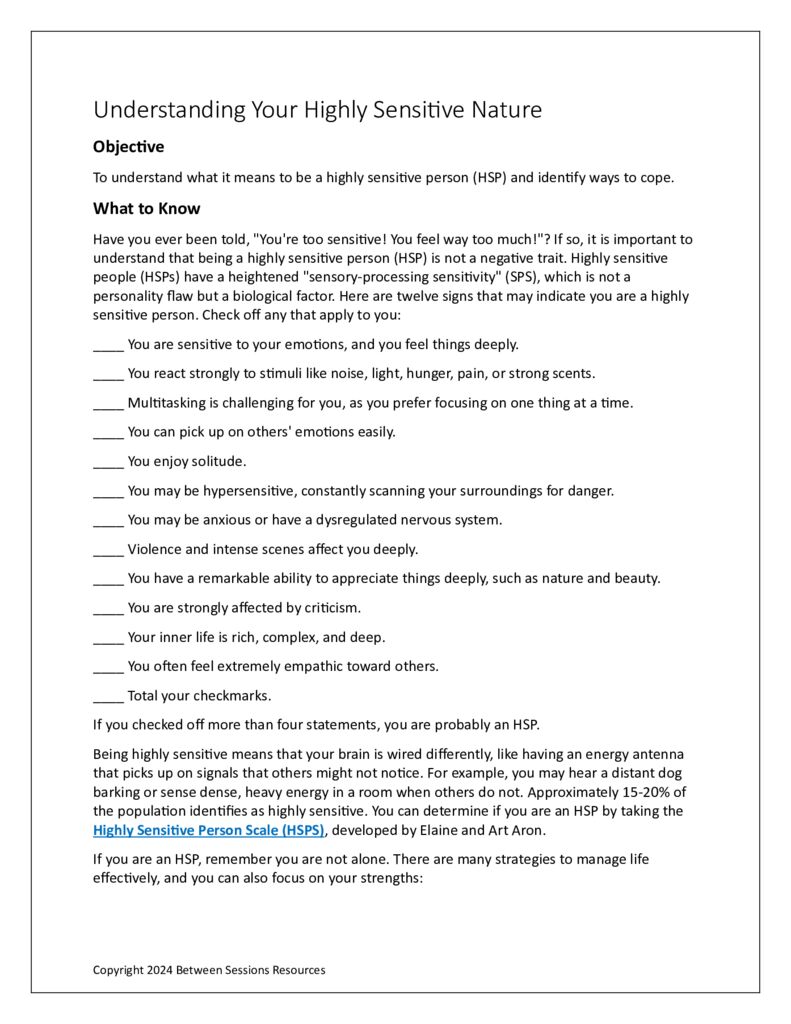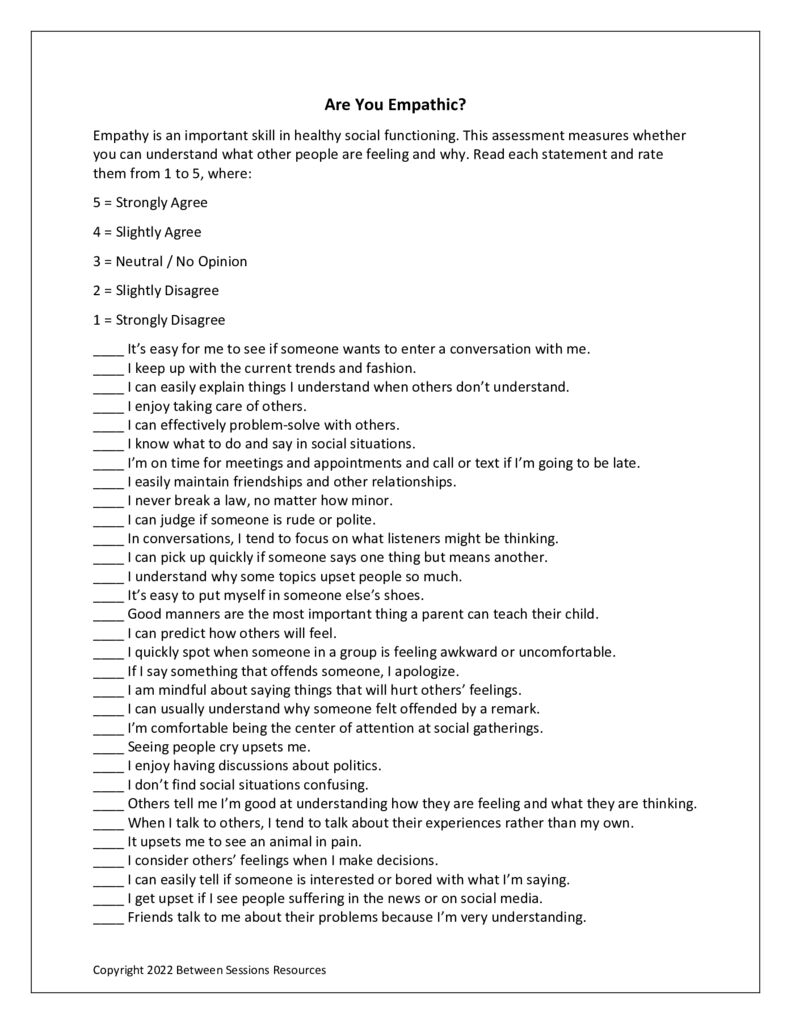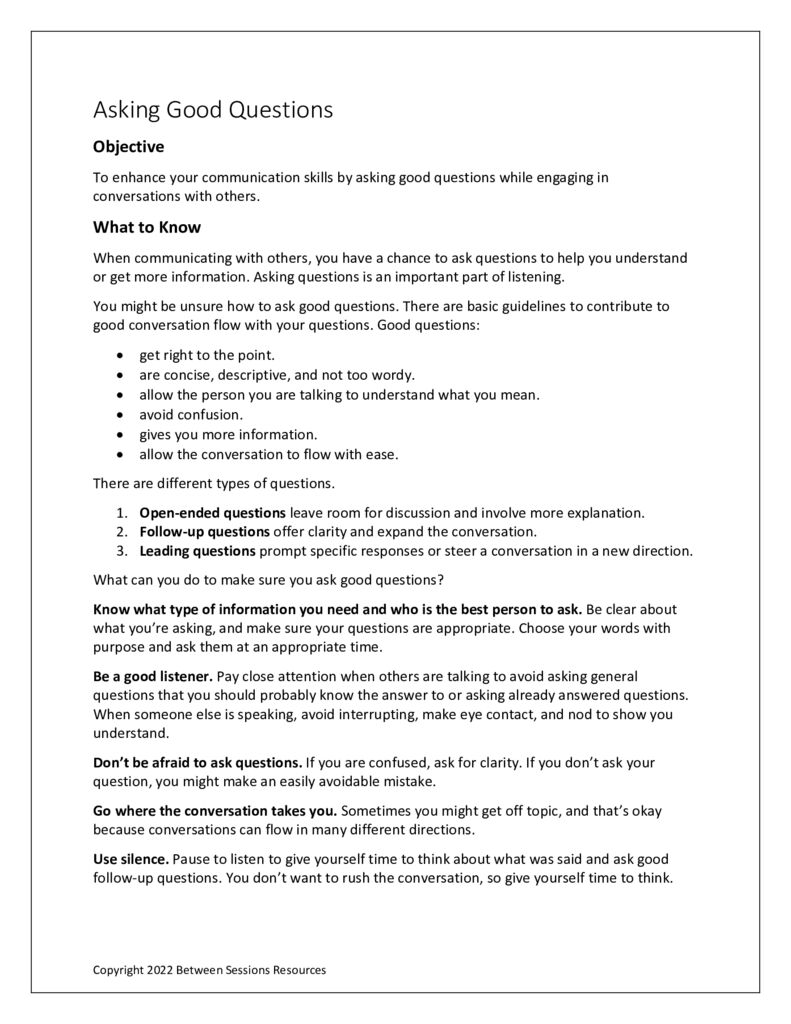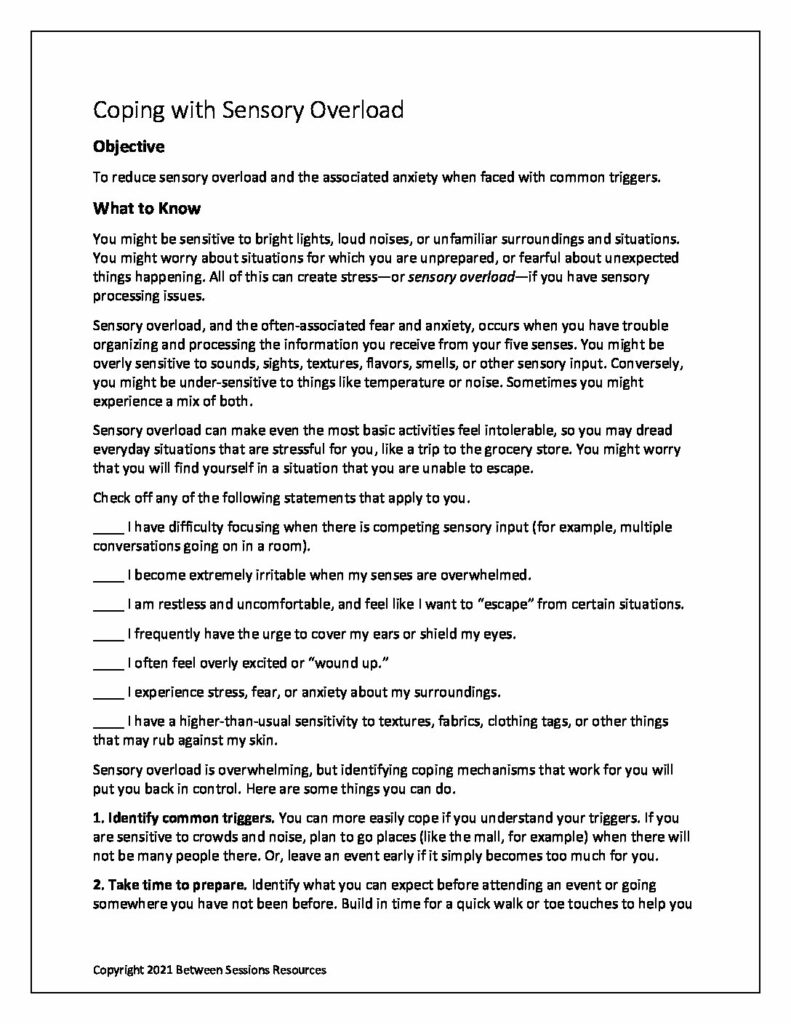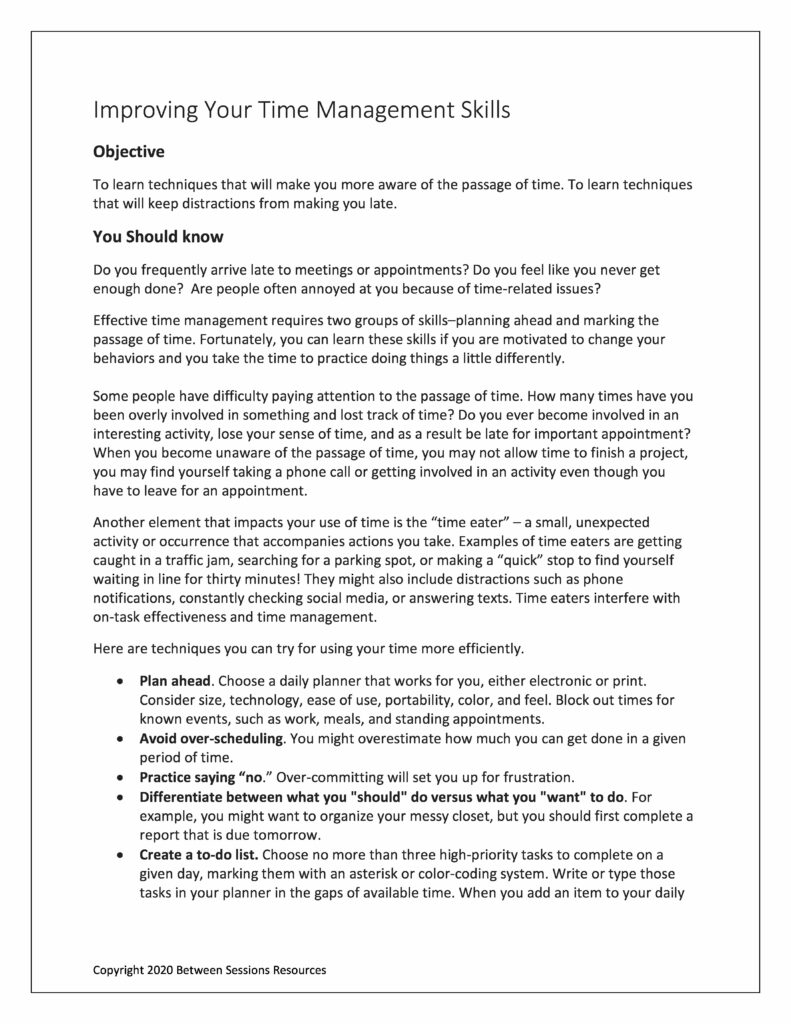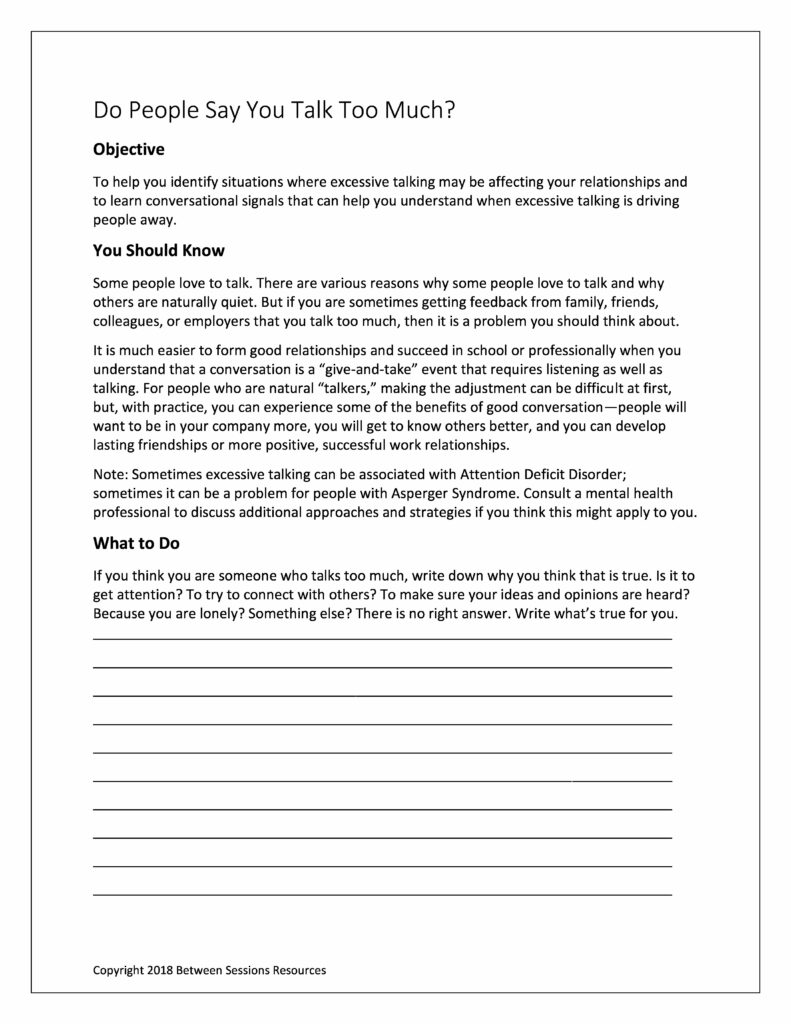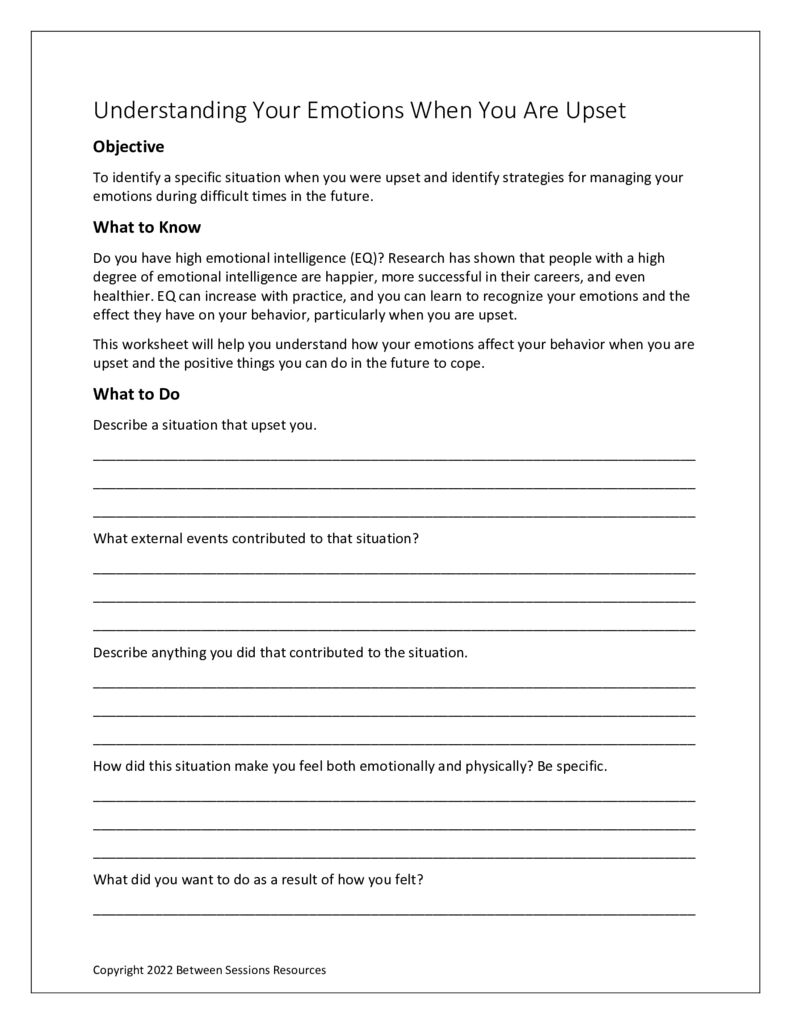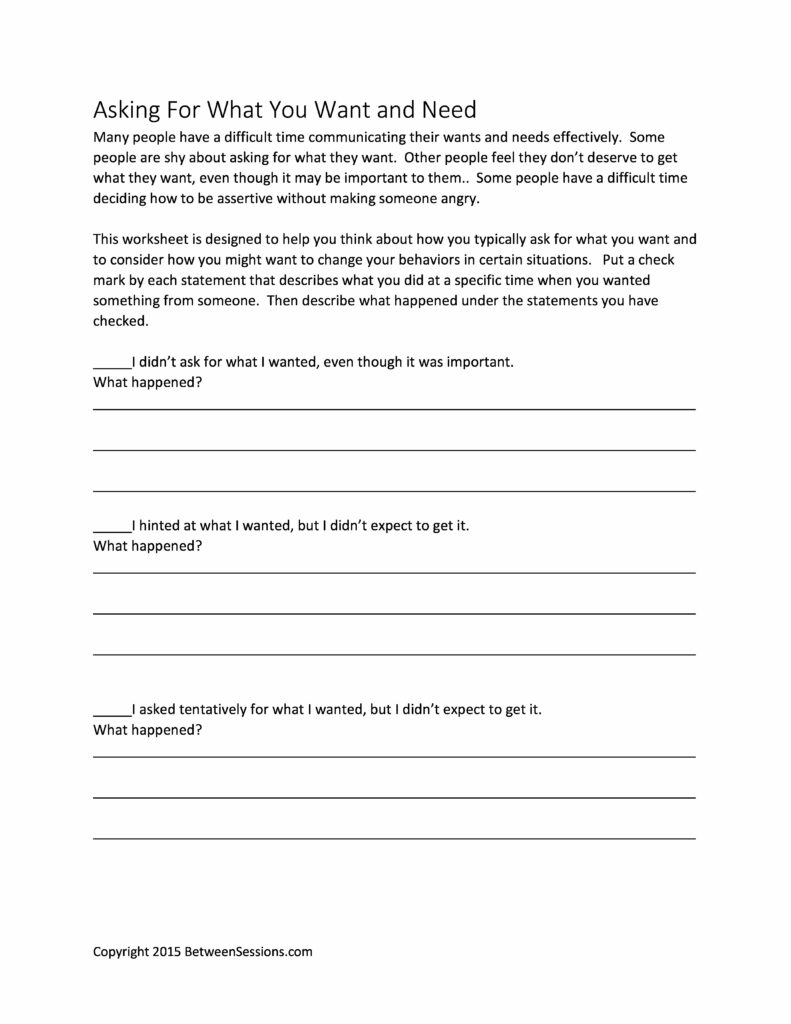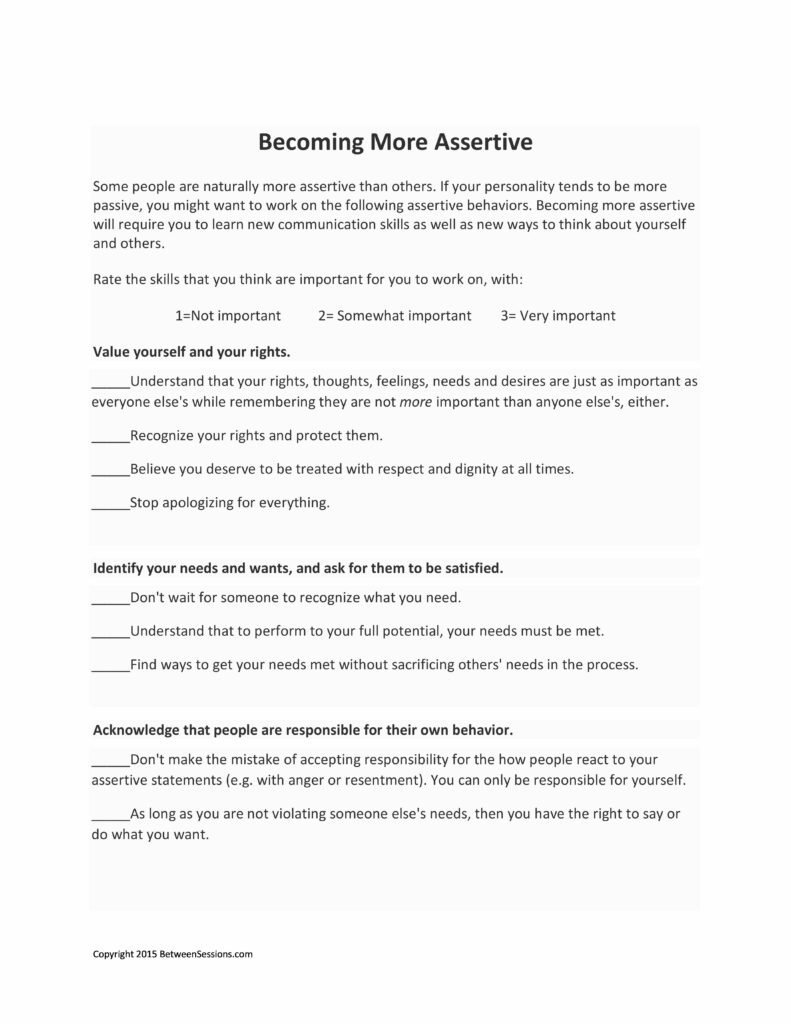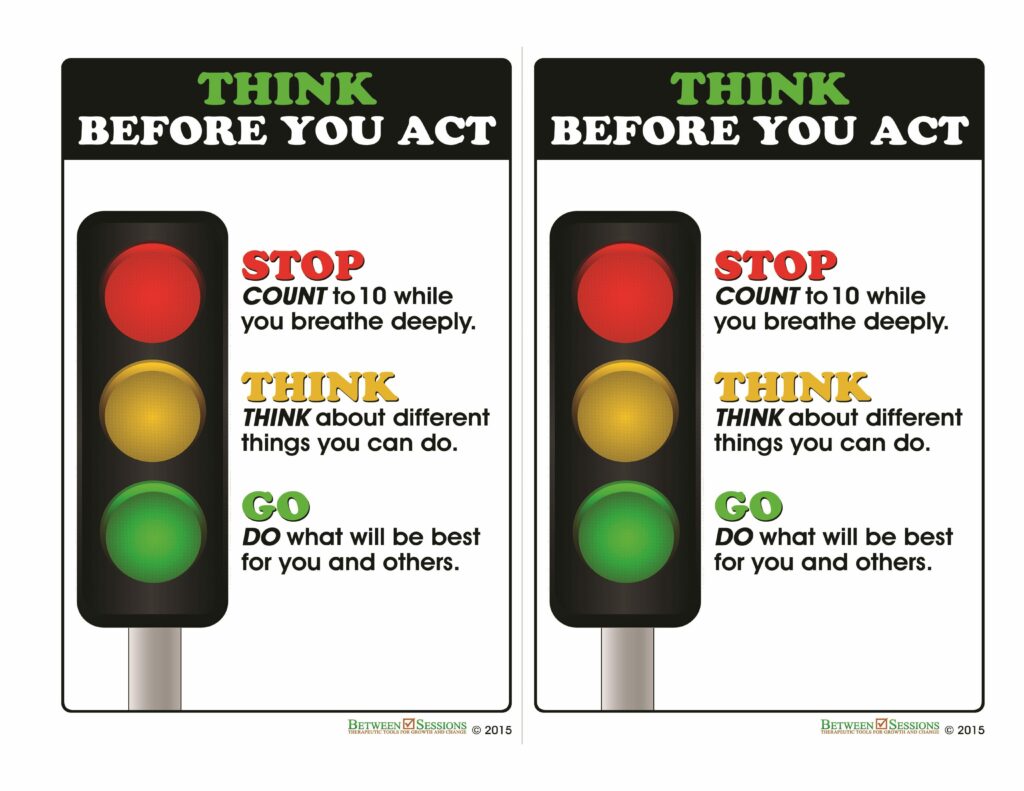Highly sensitive people (HSPs) have a heightened “sensory-processing sensitivity” (SPS), which is not a personality flaw but a biological factor. This worksheet includes a checklist to help people identify if they have this type of sensitivity and suggests exercises to help people understand themselves better. (0124. sensory processing, senses)
This assessment asks people to rate statements that would reveal empathy. It then gives an interpretation of a person’s score. This scale was adapted from Baron-Cohen and Wheelwright’s Empathy Quotient. (0922, empathy, emotional intelligence)
This worksheet deals with the type of communication many people take for granted-asking good questions. The Worksheet review the 3 basic types of questions and 10 points on how to ask good questions that move a conversation forward and make it interesting for another person. (0620, social skills, conversational skills, communication)
This worksheet is designed to help people who have anxiety related to sounds, sights, textures, flavors, smells, or other sensory input. It is intended to help people avoid and reduce sensory triggers. (0821, sensory stimulation, ASD, autism)
This worksheet helps people with time management problems become more aware of the passage of time and the distractions that can become “time-eaters.” It gives specific techniques to use to help people plan their time more effectively. (ADHD, ASD, time management, 0620)
This worksheet is designed to help people identify situations where excessive talking may be affecting their relationships and to help them learn conversational signals that can aid in more appropriate give and take conversations. (ADHD, Asperger Syndrome, relationships, social skills, 0219)
This worksheet is designed to help people identify a specific situation when they were upset and identify strategies for managing their emotions during difficult times in the future. (EQ, emotional intelligence, coping techniques, 1022)
This worksheet is designed to help people think about how assertive they are when they ask for something.
This worksheet is designed to help people think about the skills they need to become more assertive. Form Type: PDF (DBT, assertiveness, 0615)
This form can be used to give people a visual reminder to stop and think before they act. This is particularly helpful for kids and teens, but is a useful technique for adults too. (0315)

